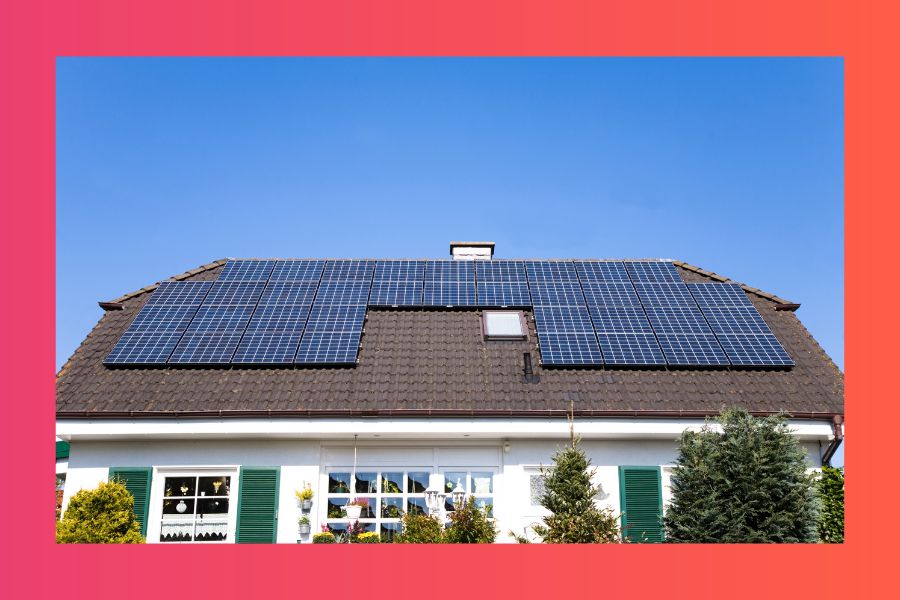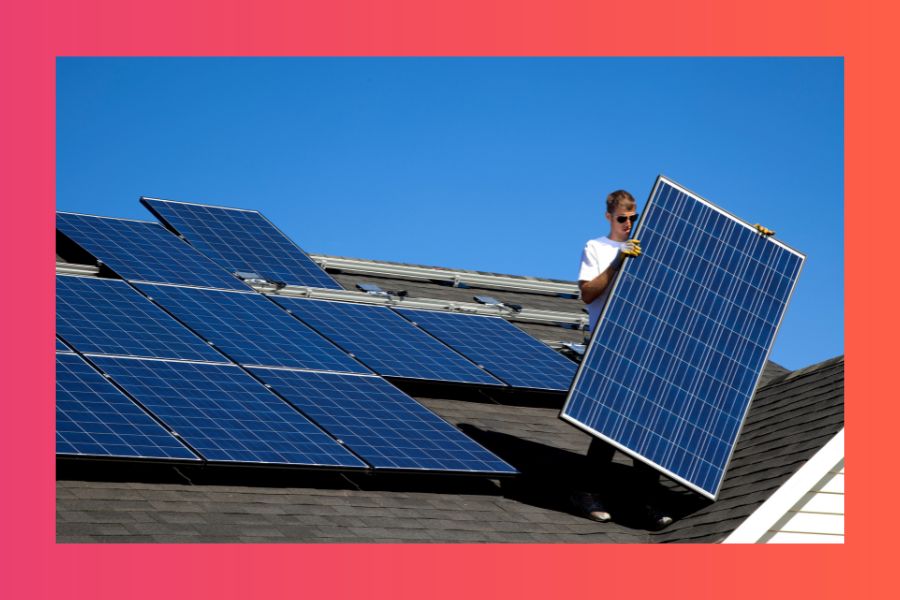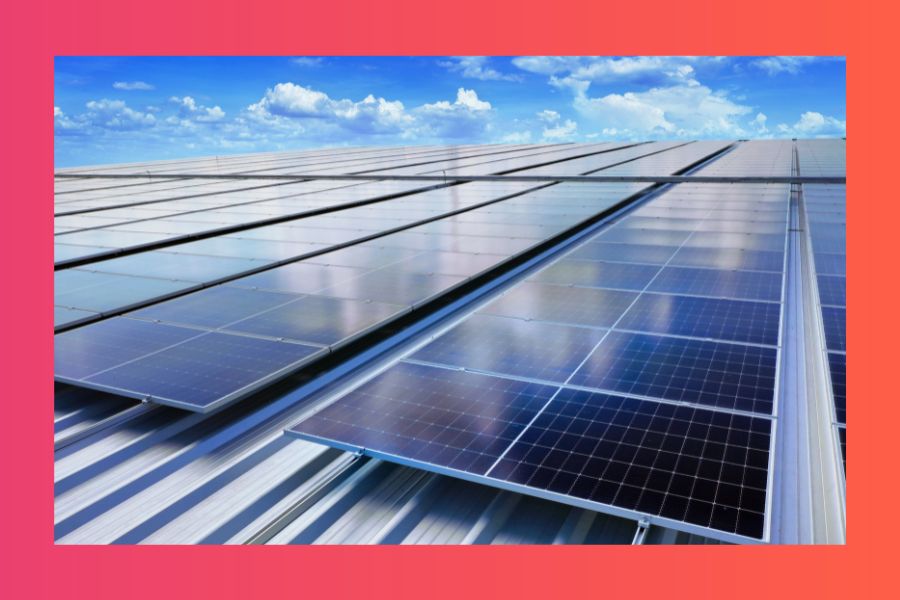Signs it’s Time to Think About Upgrading Your Rooftop Solar System
Rooftop solar systems are brilliant pieces of clean and green technology that can bring many benefits to a home. For many new solar system owners,...
3 min read
![]() Solar Trust Centre Team
:
Feb 9, 2023 9:00:00 AM
Solar Trust Centre Team
:
Feb 9, 2023 9:00:00 AM
.jpg)
When imagining the ideal environment in which a rooftop solar system operates, many Australians would understandably picture a backdrop of a perfectly clear summer sky, and brilliant sunshine beaming down upon the world. When envisioning the scene further, such a setting would of course also be a classic hot day - the kind where backyard cricket around the BBQ and trips to the beach are occurring - and the more heat the better when it comes to a rooftop solar system, right? After all, if solar generates energy from sunshine, and sunshine indeed feels more intense on hot days, then surely it’s ideal for a rooftop solar system to have a hot - to scorching! - day in terms of energy generation, yes?
Just as this perception is totally understandable, it’s reality it’s actually not the case. This misunderstanding is totally common, but it’s one that’s important to clarify. This is because rooftop solar systems ultimately operate best in cooler conditions. Yes, they can certainly also go well in hotter ones, but it’s with cooler temperatures that rooftop solar systems actually operate at their optimal. Let’s look now at why this is the case, and what it means for rooftop solar system owners and would-be owners in terms of the daily operation of solar panels.
In a nutshell, high heat diminishes the performance of solar panels. It’s certainly the case that in summery months there are more daylight hours, but higher heat can reduce the gains in energy generation a solar system would make. In turn, wintery months have less daylight hours, but can possess more ideal temperatures. This varies from locale to locale, but it affirms there’s nothing to be worried about if living in a cold climate and keen on solar panels - if anything it could be that your local environment is quite ideal indeed for a rooftop solar system.
.jpg?width=900&height=600&name=STC%20-%20Featured%20and%20Content%20Images%20(14).jpg)
It’s also important to keep in mind - especially if a system is new - that it won’t always operate at the same level of performance throughout the year. For instance, a sunny and cold day - such as is found in late spring or early autumn - could be expected to deliver a better daily output than a hot, yet cloudy day. All things being equal, in many (though not all) Australian climates, we can expect more sunny and clear days in summer than cloudy ones. So, the summery months can be expected to deliver a better period of performance for a rooftop solar system than the winter months.
Remaining mindful of this is essential if a system has been recently acquired, and seems to deliver a dip in performance from one month to the next. It must be remembered that a rooftop solar system’s operation (barring any mechanical issues or other problems) should always be assessed not on a daily, weekly, or monthly basis - but ultimately from year-to-year. It takes a full 12 months to make an assessment (allowing for variables such as El Niño and La Niña occurrences), and to be able to ascertain how a rooftop solar system can be expected to perform from one year to the next.
It’s also worthwhile to note that the positioning of a rooftop solar system also has a bearing on its performance. If a system has been installed by a quality solar installer, the placement of the system would have been done with its optimal positioning in mind. However, if for some reason this hasn’t occurred during the initial installation - or perhaps something in the surrounds (such as a neighbour adding a second storey to their home) has arisen which may diminish the performance of the panels - a repositioning of them could be necessary to place them in their (newly) ideal position.
Upon having read up until here there may be a line of thought among rooftop solar system owners that attempting to cool their own panels may be worthwhile. After all, if solar panels operate best in cool conditions - while it’s of course impossible to attempt to control the weather - a rationale could be arrived at that potentially looking to grow some trees that would in time come to shade the panels, could help their generation of energy. While this is a logical line of thought in one way - because in the fullness of time trees that grew to shade the panels could have a cooling effect via an avenue that would not exist if no tree shade was there - it’s also the case that shade diminishes the effectiveness of solar panels overall. So, although on the one hand, tree shade could perhaps cool the panels, on the other it could also be expected to hinder the ability of the solar panels to operate at optimal conditions.
Ultimately, the best way to look to optimise a rooftop solar system’s performance doesn’t require any complicated endeavours such as growing trees. Instead, it’s all about regular maintenance, and optimisation. Concerning the former, getting a rooftop solar system checked and serviced regularly is essential. How regularly specifically depends on some variables - solar systems in locales where conditions are very dusty will need to be serviced more often for example - but as a general rule of thumb, every 6 months is suitable.
Regarding the latter, if a household finds itself longing for more solar capacity, there’s a number of ways in which it may be possible to achieve this. The household may be able to add additional panels to their current system, to replace their - usually much older if a new one is justified - system with a cutting-edge one, or potentially add another system altogether which is off-grid, and able to operate alongside the existing solar system.
Here at STC, we have many more resources you can explore if you’re keen to learn more.

Rooftop solar systems are brilliant pieces of clean and green technology that can bring many benefits to a home. For many new solar system owners,...

Solar panels are outstanding, but double-sided (aka bifacial) panels can be even better - at least, when the circumstances are right. This said, just...

Australians seeking to get solar products have a right to expect good service. The majority of solar businesses in Australia will provide that. Even...